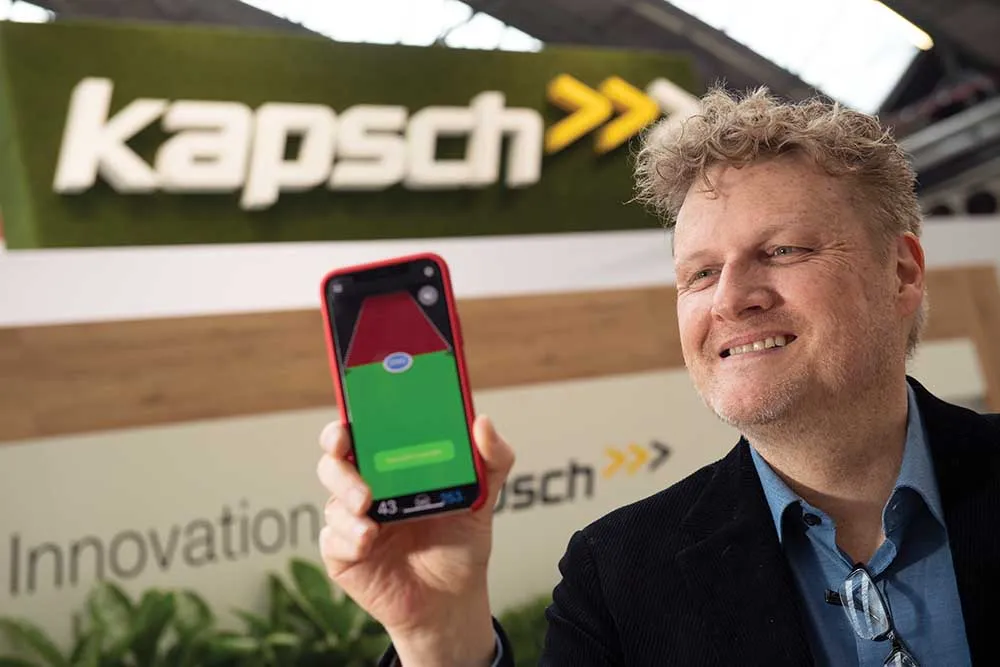Researchers at the Massachusetts Institute of Technology have developed SignalGuru, an app that uses dashboard-mounted smartphones to help drivers avoid red lights and reduce fuel consumption. Researchers say that SignalGuru predicts when a traffic signal is about to change, and the speed that should be driven when approaching an intersection in order to cruise through without stopping.
September 19, 2012
Read time: 2 mins
Researchers at the 2024 Massachusetts Institute of Technology have developed SignalGuru, an app that uses dashboard-mounted smartphones to help drivers avoid red lights and reduce fuel consumption.
Researchers say that SignalGuru predicts when a traffic signal is about to change, and the speed that should be driven when approaching an intersection in order to cruise through without stopping.
"The stop-and-go pattern that traffic signals create increases fuel consumption significantly," said Emmanouil Koukoumidis, the scientist behind the app. "We wondered how we could help drivers cruise through signal light intersections without stopping, and how much we could save on gas and improve the flow of vehicles," he added.
When approaching an intersection, the camera on a driver's dashboard-mounted smart phone is activated, which detects when a signal transitions from red to green and vice versa. Using this information, the app determines the speed that should be driven to avoid stopping at a red light on the cusp of turning green, or a green light just shy of turning red.
"It tells the drivers that 'if you drive at 30 miles per hour then you'll be able to cruise through without stopping,'" explained Koukoumidis, adding that the speed recommended is always within legal speed limits.
Information on the traffic signals, such as when they change, is sourced by other users of the app and then sent back to SignalGuru to improve the accuracy of its predictions.
Koukoumidis said that while testing their prototype in Cambridge, Massachusetts they saw a 20 percent decrease in fuel consumption, which could have a significant monetary and environmental impact. "In the US we're spending one-third of the annual energy consumption for transportation and a big part of that is vehicles," he explained.
The system was also tested in Singapore, where the traffic lights vary depending on the volume of traffic. "It was less accurate compared to Cambridge where signals were pre-timed and had fixed settings but it would still work reasonably well with predictions accurate within two seconds," Koukoumidis said.
Currently the group is looking for industrial partners to commercialise the software. They also plan to implement other safety features, such as thresholds on deceleration, before making it accessible to the public.
Researchers say that SignalGuru predicts when a traffic signal is about to change, and the speed that should be driven when approaching an intersection in order to cruise through without stopping.
"The stop-and-go pattern that traffic signals create increases fuel consumption significantly," said Emmanouil Koukoumidis, the scientist behind the app. "We wondered how we could help drivers cruise through signal light intersections without stopping, and how much we could save on gas and improve the flow of vehicles," he added.
When approaching an intersection, the camera on a driver's dashboard-mounted smart phone is activated, which detects when a signal transitions from red to green and vice versa. Using this information, the app determines the speed that should be driven to avoid stopping at a red light on the cusp of turning green, or a green light just shy of turning red.
"It tells the drivers that 'if you drive at 30 miles per hour then you'll be able to cruise through without stopping,'" explained Koukoumidis, adding that the speed recommended is always within legal speed limits.
Information on the traffic signals, such as when they change, is sourced by other users of the app and then sent back to SignalGuru to improve the accuracy of its predictions.
Koukoumidis said that while testing their prototype in Cambridge, Massachusetts they saw a 20 percent decrease in fuel consumption, which could have a significant monetary and environmental impact. "In the US we're spending one-third of the annual energy consumption for transportation and a big part of that is vehicles," he explained.
The system was also tested in Singapore, where the traffic lights vary depending on the volume of traffic. "It was less accurate compared to Cambridge where signals were pre-timed and had fixed settings but it would still work reasonably well with predictions accurate within two seconds," Koukoumidis said.
Currently the group is looking for industrial partners to commercialise the software. They also plan to implement other safety features, such as thresholds on deceleration, before making it accessible to the public.










